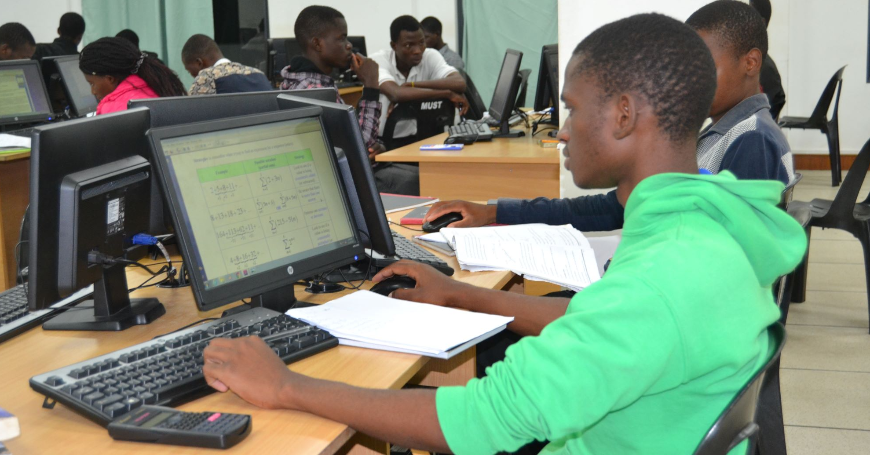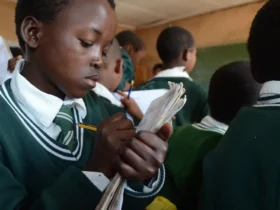

In recent years, Tanzania has witnessed a remarkable transformation in its education sector, particularly in the performance and adoption of computer studies in secondary schools.
This progress reflects the country’s commitment to equipping students with essential digital skills, preparing them for a technology-driven world.
The Rise of Computer Studies in Tanzania
As the global economy becomes increasingly digital, Tanzania has recognized the critical role of computer literacy in fostering national development.
Secondary schools across the country have embraced computer studies as a core subject, integrating it into their curricula and providing students with the tools they need to thrive in the modern age.
The government, in collaboration with private organizations, has made significant investments in infrastructure, including the provision of computer labs, internet connectivity, and modern teaching materials.
These advancements have enabled students in both urban and rural areas to access quality education in computer studies.
Improved Performance and Student Engagement
The introduction of interactive teaching methods and the use of technology in classrooms have significantly improved student engagement and academic performance in computer studies.
Teachers are leveraging multimedia tools, coding platforms, and practical sessions to make learning more engaging and effective.
Moreover, students are now participating in national and international competitions in fields such as robotics, programming, and digital innovation, showcasing their skills and creativity.
These achievements not only highlight the growth of computer studies but also inspire other students to pursue excellence in the subject.
Challenges in Computer Studies Implementation
Despite the remarkable progress, challenges persist. Many secondary schools, particularly in remote areas, still face a lack of resources, including computers, reliable electricity, and trained teachers.
Bridging this gap requires continued investment and innovative solutions, such as mobile computer labs and teacher training programs.
Additionally, there is a need to update curricula regularly to keep pace with the rapidly evolving technology landscape. This ensures that students are learning relevant skills that align with current industry demands.
Government and Private Sector Collaboration
The Tanzanian government has partnered with various stakeholders, including NGOs, private companies, and international organizations, to support the growth of computer studies in secondary schools.
Initiatives such as the “Digital Tanzania” program aim to expand internet connectivity and digital literacy across the nation.
Private sector involvement has also been instrumental, with companies providing resources, training, and mentorship programs for students and teachers.
These collaborations have created a robust ecosystem that supports the continuous improvement of computer studies in secondary schools.
The Future of Computer Studies in Tanzania
Looking ahead, the future of computer studies in Tanzania’s secondary schools is bright. With ongoing investments in technology and education, the country is poised to produce a generation of tech-savvy individuals who can drive innovation and economic growth.
The integration of advanced topics such as artificial intelligence, data science, and cybersecurity into the curriculum will further enhance students’ competitiveness in the global job market.
Additionally, efforts to ensure inclusivity and gender equity in computer studies will empower more students, particularly girls, to pursue careers in technology.
Conclusion
Tanzania’s secondary schools are making remarkable strides in computer studies, fostering a culture of innovation and digital literacy.
Through collaborative efforts, strategic investments, and a commitment to excellence, the country is paving the way for a brighter, technology-driven future.
As the demand for digital skills continues to rise, Tanzania’s focus on computer studies will not only transform its education sector but also position the nation as a leader in Africa’s digital revolution.
Related articles
- Top 10 Provinces in Matric Results 2024/2025: Celebrating Academic Excellence
- South Africa’s Basic Education Department Unveils 2024 Matric Results
- Top 10 Students in KCSE Results 2024/2025: How to Check and Celebrate Excellence
- Top 100 Students in KCSE Results 2024/2025: Celebrating Kenya’s Brightest Minds
- Top 10 Schools in KCSE Results 2024/2025: Leading the Nation in Academic Excellence
- How to Check KCSE Results 2024/2025: A Step-by-Step Guide
- KCSE Results 2024/2025: How to Access, Interpret, and Plan Ahead
- Top 10 Students in Matric Results 2024/2025: Best Performers and Outstanding Achievements









Leave a Reply